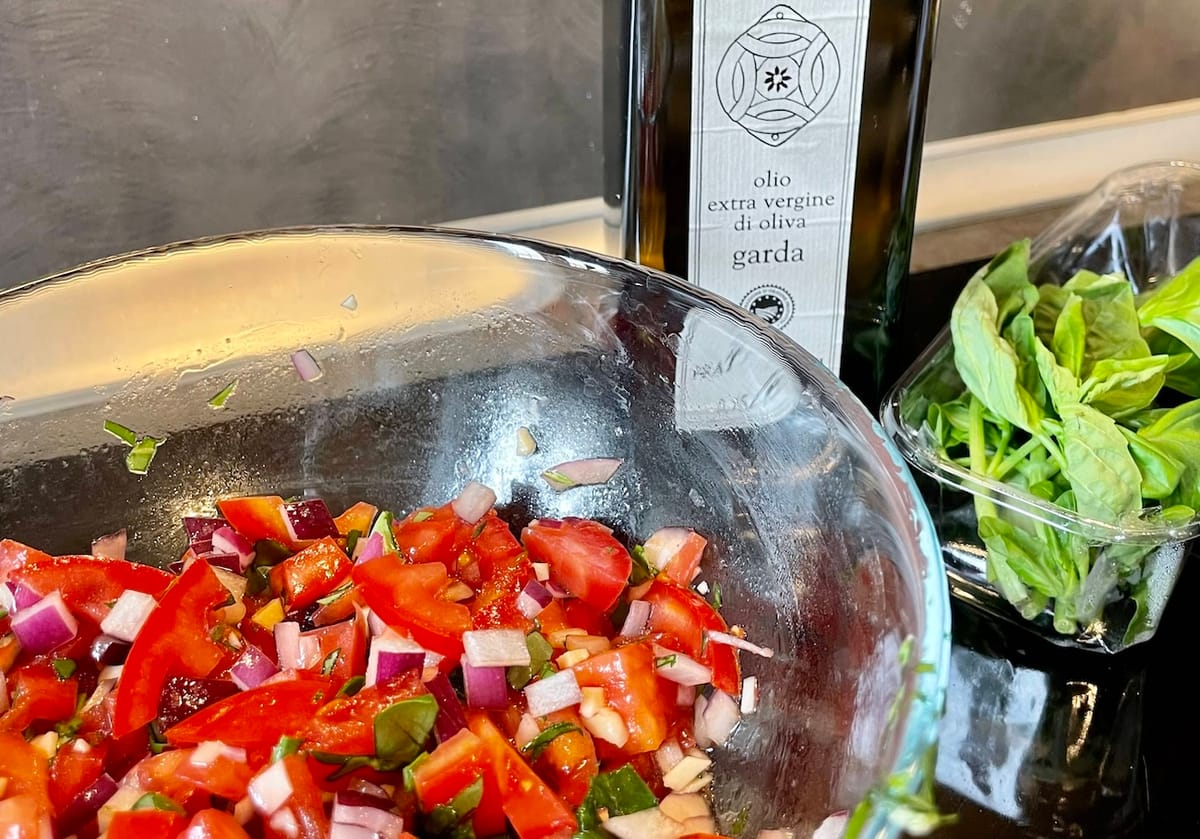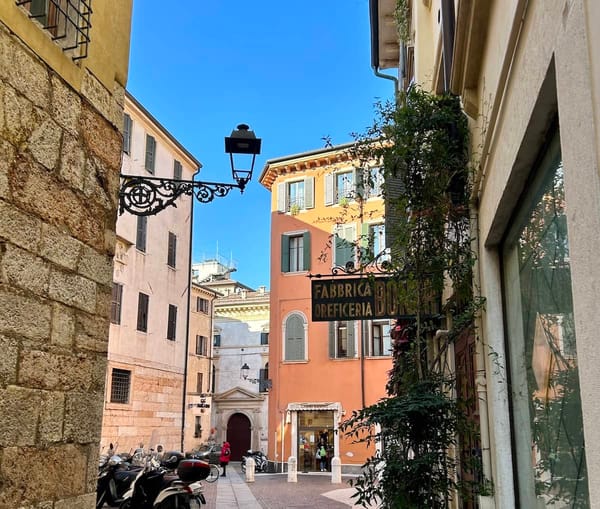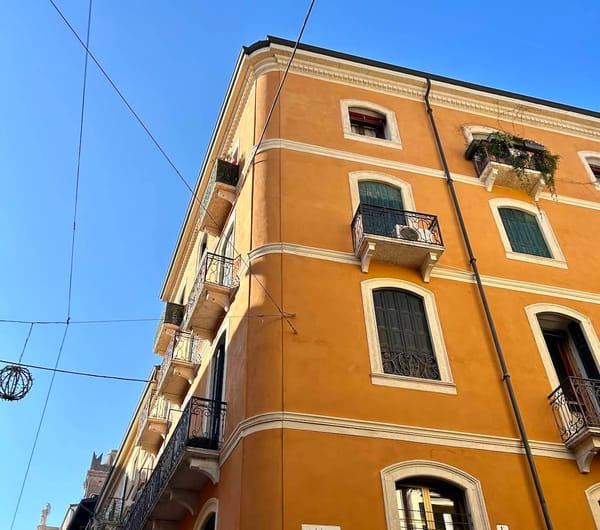How To Pronounce 'Bruschetta' Like An Italian
Tips for pronouncing "bruschetta", "ciabatta", and other Italian words like a local.

- Correctly Pronouncing 'Bruschetta'
- What is Bruschetta?
- Other Commonly Mispronounced Italian Words
- Understanding Italian Pronunciation
If you've ever ordered 'Bruschetta' at a restaurant and watched your Italian friend slowly turn red and grab their car keys, this article is for you.
English speakers are notorious for mispronouncing Italian words, and many of us don't even realize we're doing it! Here's how you can sound like a local the next time you're traveling through Italy or ordering from an Italian menu.
Correctly Pronouncing 'Bruschetta'
The key to pronouncing 'Bruschetta' the Italian way is to focus on the 'ch.'
In Italian, 'ch' is pronounced like 'k' in English.
'Bruschetta' should be pronounced as 'broo-SKEH-ttah,' with an emphasis on the middle part. The 'u' is pronounced like 'oo' in 'food,' the 'e' is like 'e' in 'set,' and the final 'a' is a soft 'ah,' as in 'father.'

What is Bruschetta?
Bruschetta (pronounced "broo-SKEH-ttah") is a classic Italian appetizer that consists of grilled bread rubbed with garlic and topped with a variety of toppings, most traditionally a mixture of fresh tomatoes, basil, garlic, onion, salt, pepper, and a drizzle of extra-virgin olive oil.
The name comes from the Italian word 'bruscare,' which means 'to roast over coals.'
Originating as a way to salvage bread that was going stale, bruschetta is a testament to the Italian knack for creating simple yet delicious dishes with whatever is on hand.
While the tomato-based version is the most widely recognized, bruschetta can be topped with a variety of ingredients, including vegetables, cured meats, cheese, and beans. It's a versatile dish that can be served as a snack, appetizer, or even a light meal, and is a staple of Italian cuisine known for its fresh and vibrant flavors.
Other Commonly Mispronounced Italian Words
- Gnocchi: The 'gn' in Italian sounds like 'ny' in 'canyon,' making it 'NYOH-kee.'
- Caprese: The island of Capri gives its name to this salad, pronounced 'cah-PREH-seh,' not 'cah-PREEZ.'
- Prosciutto: This delicious ham is 'proh-SHOOT-toh,' not 'pro-SHOO-toh.'
- Espresso: Often pronounced as "expresso," the correct pronunciation is "es-PRES-so."
- Tagliatelle: This long, ribbon-like pasta should be pronounced "tah-lyah-TEL-leh," not "tag-lee-ah-tell."
- Ciabatta: The 'ci' in Italian is pronounced like 'chee', so this bread is "cha-BAH-tah," not "see-ah-BAH-tah."
- Pecorino: This cheese's name should be pronounced "peh-coh-REE-noh," with a rolled 'r', not "peck-oh-REE-no."
- Chianti: The 'ch' in Chianti is a 'k' sound in Italian, making it "kee-AHN-tee," not "chan-tee."
- Marinara: This simple tomato sauce's name is pronounced "mah-ree-NAH-rah," not "mare-in-AR-ah."
Understanding Italian Pronunciation
Italian pronunciation is mostly phonetic, which means that words are typically pronounced as they are written, making it easier once you know the basics. Here are some key points:
- The 'C' Sound: When the letter 'c' comes before an 'e' or 'i,' it's pronounced like 'ch' in 'church'. For example, in the word 'ciao' (chow).
When the letter 'c' comes before other vowels, it's pronounced like the 'c' in 'cat.' - The 'G' Sound: When a 'g' comes before an 'e' or 'i', it is pronounced like 'j' in 'jam.' For instance, in the word 'gelato' (jeh-LAH-toh). Otherwise, the Italian 'g' is pronounced like the word 'go'.
- Double Consonants: Italian often doubles up consonants. This isn't just for show; it affects the pronunciation. You hold the sound slightly longer, as in 'pizza' (PEET-tsah).
- Vowels: Italian vowels are clear and distinct, and there are no diphthongs as in English. For instance, 'i' is always pronounced like 'ee' in 'see,' never like 'i' in 'visit.'
By memorizing the rules of the Italian language listed above, you should be able to pronounce menu items and make yourself understood without offending your Italian waiter, lover, or friend. Buona fortuna (Good luck)!





